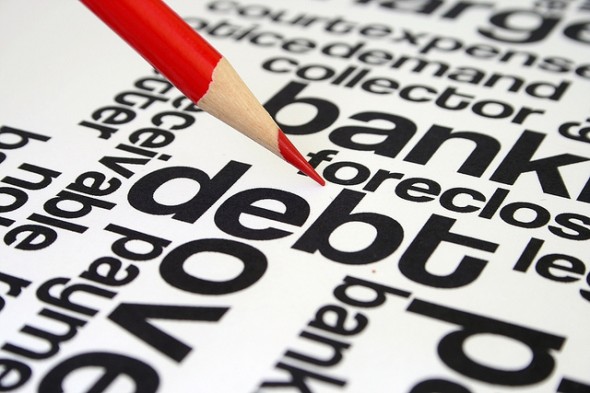Getting into debt easy. Digging your way out, on the other hand, is usually a much tougher challenge. Whether you’ve got credit cards, student loans or a car, eliminating your debt requires discipline, a little sacrifice and a solid strategy for paying it down. If you’re just blindly throwing money at your bills each month, chances are you’re not making much of a dent in what you owe. It’s possible that you could even be sabotaging your debt payoff by making some of these common money mistakes.
1. Not Knowing What You Owe
Paying your credit card bill each month without reading over your statement is a sign that you may be in denial about your financial situation. When you continue to rack up new debt, you’re only making the problem that much bigger once you finally decide to deal with it. If you’re really serious about dumping your debt once and for all, you’ve got to be able to face up to how much you really owe.
Making a list of all your outstanding debts is a good place to start. In addition to writing down the balance, you also want to note how much you’re paying in interest each month and what the minimum payment is. Adding up the total amount you owe can be frightening but it’s important to face the music. Once you know where your starting point is, you can work on figuring out how to begin tackling your debt.
2. Paying Just the Minimums
Thanks to the 2009 CARD Act, credit card companies are required to include information on your statement showing you how long it would take to pay off your balance if you just pay the minimum. This is really helpful information to have but if you’re like most people, you probably don’t give it a second glance.
Paying just the minimums on your debt is one of the biggest traps you want to avoid, especially if your card has a high interest rate. You’re essentially wasting money, since most or all of what you’re paying is likely going straight to the interest. If you’re dutifully sending in $25, $50 or $100 each month but you never really see the balance going down, it’s a sign that you need to step up your efforts. Even if it’s just an extra $5 or $10 a month, it can help you reach your debt-free goal that much faster.
3. Working Without a Plan
Deciding you want to pay off your debt and actually making it happen are two very different things. Having a plan in place for attacking your bills can have a significant impact on how successful you actually are. If you’re not sure where to start, there are a couple of repayment options to consider.
The first strategy involves paying down your debts based on the interest rate. You throw as much money as possible at the debt charging you the most interest first and just pay the minimums on everything else. This is a smart choice if you’re looking to save money but it could take you a little longer to pay down your debts.
Going after the debts with the lowest balances first lets you knock some of the smaller bills out of the way and it can give you the motivation to keep going. You’ll probably end up paying more in interest but if you’ve got a lot of debts, getting rid of one or two right off the bat can make it easier to follow through. Ultimately, you have to decide which method fits best with your budget and goals.
4. Not Having a Budget
The purpose of writing a budget is to see where your money’s going each month. Without a budget, it’s much easier to overspend or buy things you don’t need. If you routinely come up short on cash and use a credit card to make up the difference, you’re just creating a vicious cycle of debt for yourself.
If you’ve never made a budget before, tracking your spending can give you an idea of what your biggest money leaks are. Spending a few dollars on lunch every day may not seem like a lot but you’d be surprised at how quickly it adds up. Once you know what your actual expenses are, you can look for ways to cut back on your spending. Just remember that your budget will only work as long as you’re willing to stick to it.
When you’re trying to pay down debt it may seem like you’ll never reach the light at the end of the tunnel. Staying focused and knowing what potential pitfalls to avoid can make it easier to achieve financial freedom.
Photo Credit: attorneyrobertflavell
